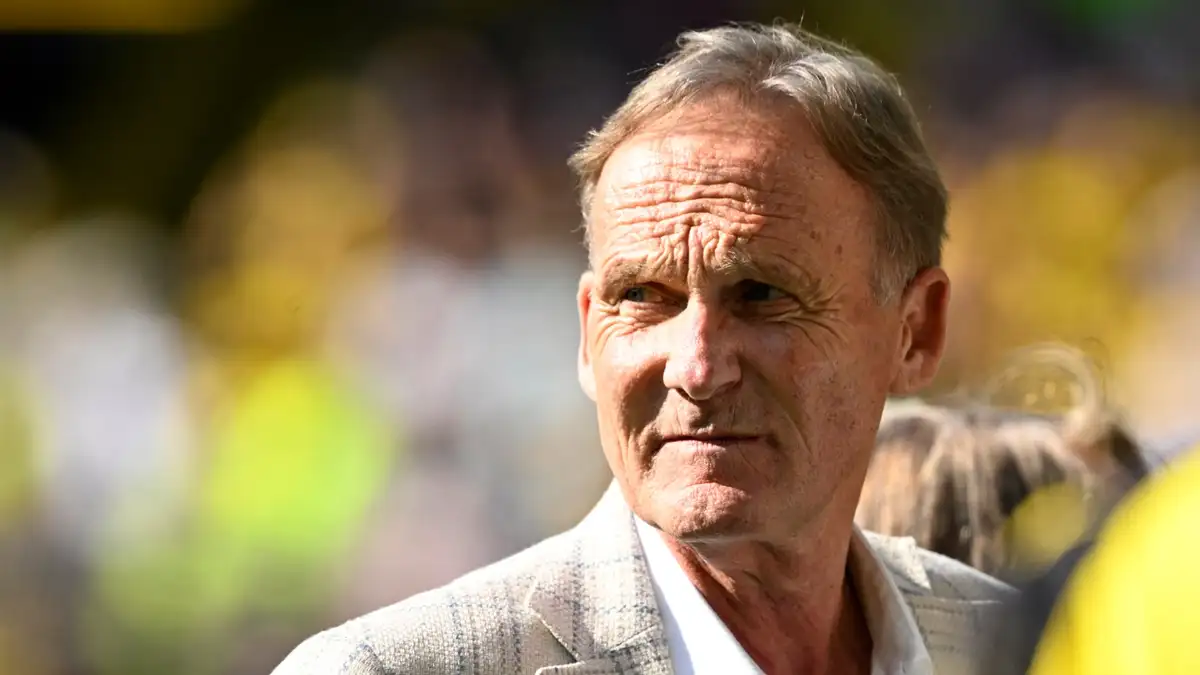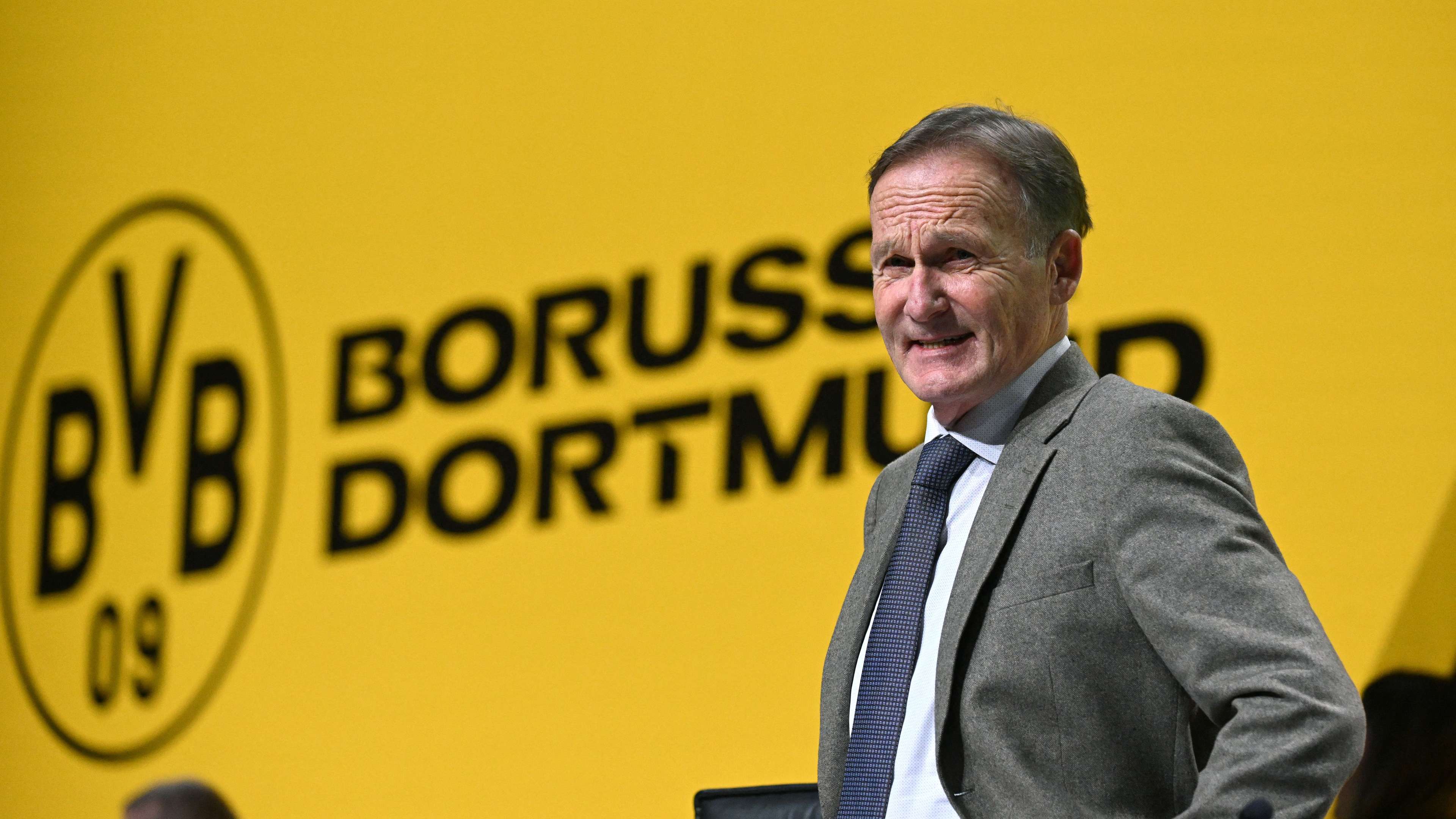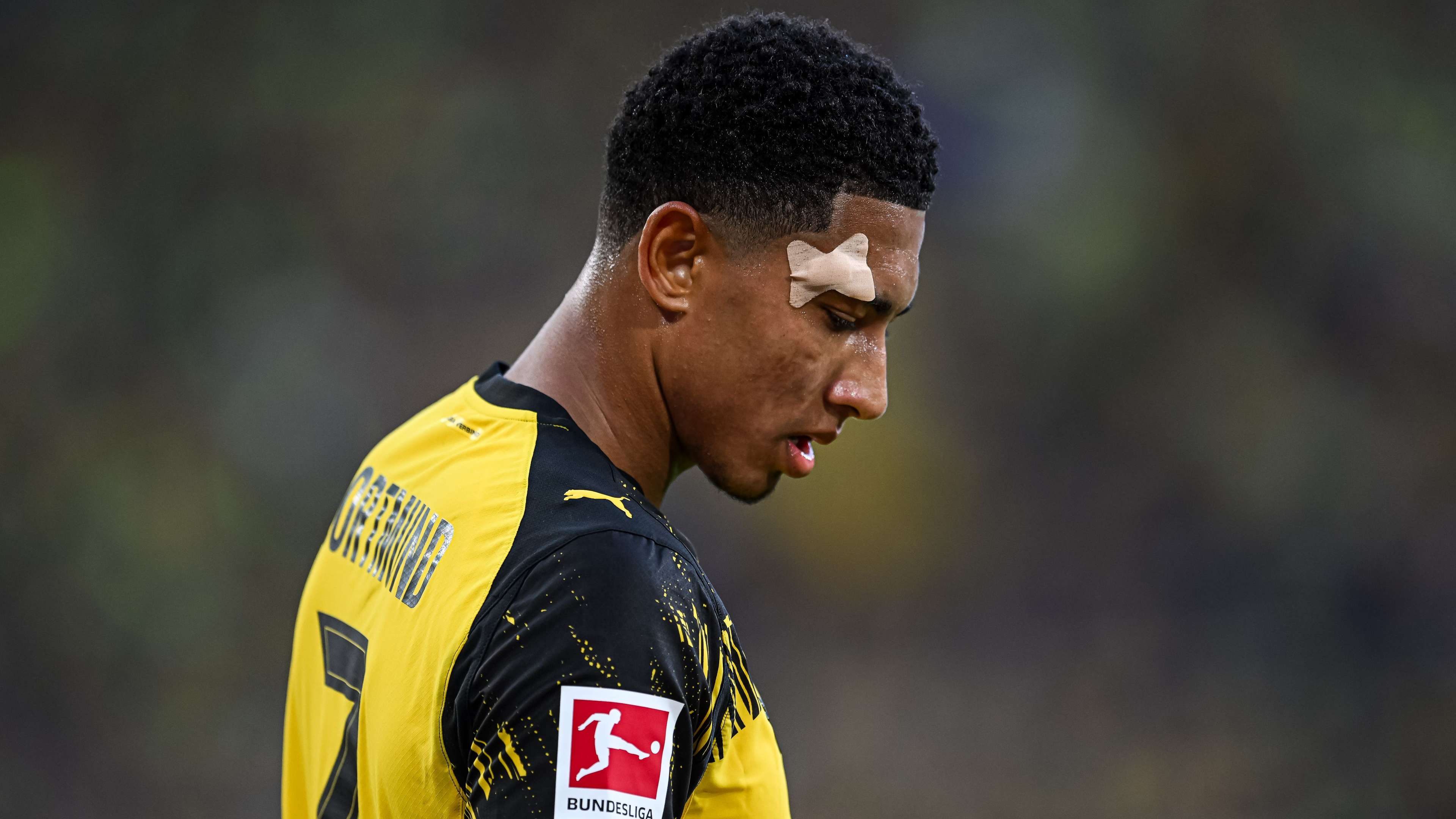
Salary Caps ‘Unavoidable’ as Borussia Dortmund Chief Warns Finances Will ‘Get More Out of Hand’
Watzke Sounds Alarm on Football’s Financial Future
Few executives in European football carry the same weight as Hans-Joachim Watzke, the long-serving Borussia Dortmund director and a senior figure in the German Football League (DFL). Known for speaking his mind and rarely sugarcoating his words, Watzke has once again sparked debate by insisting that salary caps in European football are now “unavoidable”.
Speaking in an interview with Frankfurter Rundschau, the German official did not mince words when discussing what he sees as the out-of-control spending culture in modern football. He also touched on the increasing reliance of European clubs, and the sport as a whole, on money flowing from Saudi Arabia and the wider Gulf region.
“Ultimately, a salary cap will be unavoidable,” Watzke warned. “Without it, everything will get even more out of hand.”

FBL-GER-BUNDESLIGA-DORTMUND-AGM
The Bigger Picture: Why Salary Caps Are Back on the Table
Watzke’s comments come at a time when questions around the sustainability of football’s finances are being asked louder than ever.
In the Premier League, widely regarded as the most lucrative and commercially powerful competition on the planet, financial disparity and spiralling wages have become a recurring theme. The Borussia Dortmund chief argued that, despite enormous broadcast revenues and sponsorship deals, most English clubs are struggling to post a profit.
“As far as I know,” he said pointedly, “hardly any club there makes a profit despite their huge budgets.”
This, according to Watzke, is proof that the current trajectory is not only risky but ultimately unsustainable. Salaries have become the single largest expense for most top clubs, with some wage bills dwarfing the annual revenues of entire mid-table leagues elsewhere in Europe.
While UEFA’s Financial Fair Play (FFP) rules were designed to address such concerns, critics say the system has failed to meaningfully restrict elite clubs. Loopholes, creative accounting, and deferred payments have allowed the biggest institutions to continue spending at a pace that smaller rivals cannot match.
A salary cap, Watzke suggests, could be the solution.
Why Salary Caps Face Resistance
Of course, implementing such a system across Europe is far from simple. Unlike in the United States, where centralized leagues such as the NFL or NBA dictate strict salary structures, European football is fragmented.
Each domestic league has its own rules, UEFA sets regulations for continental competition, and the European Union’s labour laws complicate any attempt to restrict wages. Players’ unions are likely to resist measures that limit earning potential, particularly in a sport with relatively short professional careers.
Still, Watzke believes the conversation is no longer avoidable. “At some point, they’ll notice this in England, too,” he remarked, suggesting that financial crises will eventually force the Premier League and others to reconsider.
Saudi Arabia’s Role in the New Football Economy
Watzke’s blunt assessment did not stop at European overspending. He also weighed in on the surge of Saudi Arabian investment in football, acknowledging both its inevitability and the hypocrisy of those who criticize it.
“We’re deluding ourselves,” he argued. “As long as large DAX-listed companies are happy to involve the Saudis in their capital increases, we shouldn’t paint the world as more beautiful than it actually is. Our industry is only too happy to accept money from the Gulf States.”
His point is clear: football is not an isolated bubble. If global corporations in sectors like energy, technology, and finance are happy to work with Saudi Arabia, why should football be singled out for scrutiny when it accepts similar investment?
In recent years, Saudi money has funded major sponsorship deals, high-profile player transfers, and the revamped FIFA Club World Cup. Most significantly, the country is set to host the 2034 FIFA World Cup, just 12 years after neighbouring Qatar staged the 2022 edition.
The Premier League Example
Watzke’s reference to England is not accidental. The Premier League has long been considered the benchmark for financial growth in football, with its record-breaking television deals and global reach. Yet behind the glamour, the German chief sees signs of fragility.
Despite revenues that dwarf the Bundesliga, La Liga, and Serie A, the vast majority of Premier League clubs continue to operate at a loss. Player salaries, agent fees, and transfer outlays consume staggering sums of money, leaving little room for profit.
The arrival of Saudi-backed clubs willing to pay astronomical wages has only added fuel to the fire. Premier League sides now find themselves in bidding wars not only with each other, but also with a league that has state-level backing and little need to balance the books.
For Watzke, the warning signs are obvious: unless structural reform is introduced, football risks inflating itself into deeper financial instability.
UEFA’s Dilemma
The idea of a Europe-wide salary cap would inevitably fall at the feet of UEFA, football’s continental governing body. But the challenges are immense.
-
Legal hurdles: Restricting wages could be seen as a violation of EU labour laws.
-
Competitive balance: Would clubs in nations outside the EU, such as England post-Brexit, still need to comply?
-
Global market: If Europe imposes strict caps, could players simply move to other regions — like Saudi Arabia, the US, or even Asia — where they can earn more?
Watzke acknowledges these difficulties but insists they cannot be an excuse for inaction. The longer football delays, the more entrenched the financial divide becomes, leaving mid-tier clubs further behind.
The Gulf Connection: Hypocrisy or Necessity?
The acceptance of Gulf investment is another issue that divides opinion. Critics point to sportswashing and human rights concerns. Proponents argue that the influx of cash is vital to the game’s growth and helps elevate competitions to new heights.
Watzke’s position is pragmatic, if somewhat uncomfortable: football, like every other major global industry, is already reliant on money from the Gulf. To pretend otherwise is dishonest. The question, then, is not whether to accept the money, but how to regulate and channel it responsibly.
What Next for European Football?

Borussia Dortmund v 1. FC Union Berlin – Bundesliga
As one of the most influential figures in German and European football, Watzke’s words carry weight. His dual role at Borussia Dortmund and within the DFL means he straddles both the club and league perspective.
His call for salary caps will not bring immediate change, but it may spark deeper conversations at UEFA headquarters in Nyon and across the boardrooms of Europe’s biggest clubs.
The debate, ultimately, is about balance:
-
How does football remain financially sustainable while continuing to attract the world’s best talent?
-
How can leagues remain competitive when new players — like Saudi Arabia — can outspend traditional markets with ease?
-
And most importantly, how does the game avoid a bubble that eventually bursts?
Conclusion: Watzke’s Stark Warning
Hans-Joachim Watzke has never been afraid to speak plainly, and his latest remarks are no different. By insisting that salary caps are “unavoidable” and acknowledging football’s willingness to take Gulf money, he has touched on two of the sport’s most pressing and sensitive issues.
Whether European football is ready to confront them is another matter. Change, especially structural reform, moves slowly in a sport as fragmented as football. But as Watzke himself noted, reality has a way of catching up.
Sooner or later, European clubs may be forced to reckon with the fact that the current financial model is unsustainable — and that reform, no matter how controversial, might be the only way forward.




























There are no comments yet. Be the first to comment!